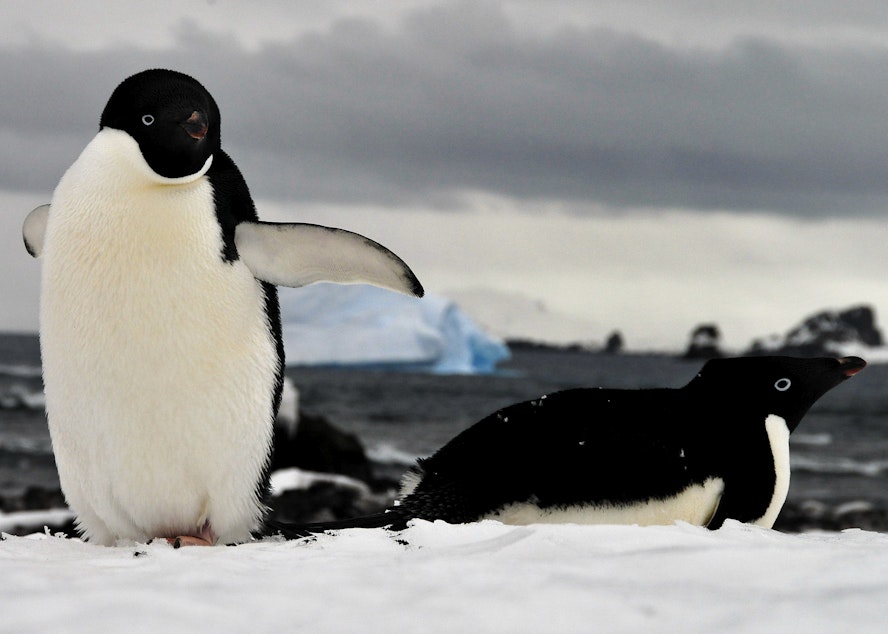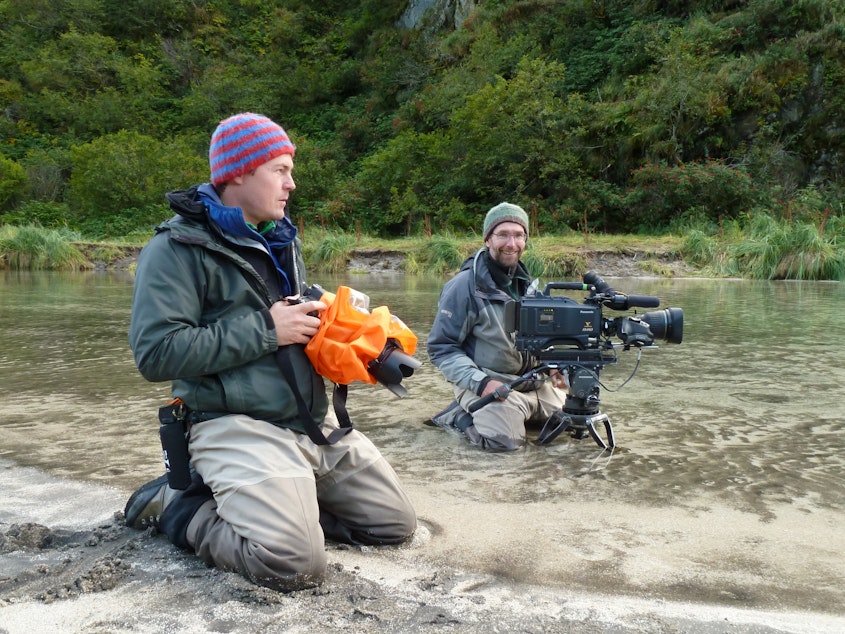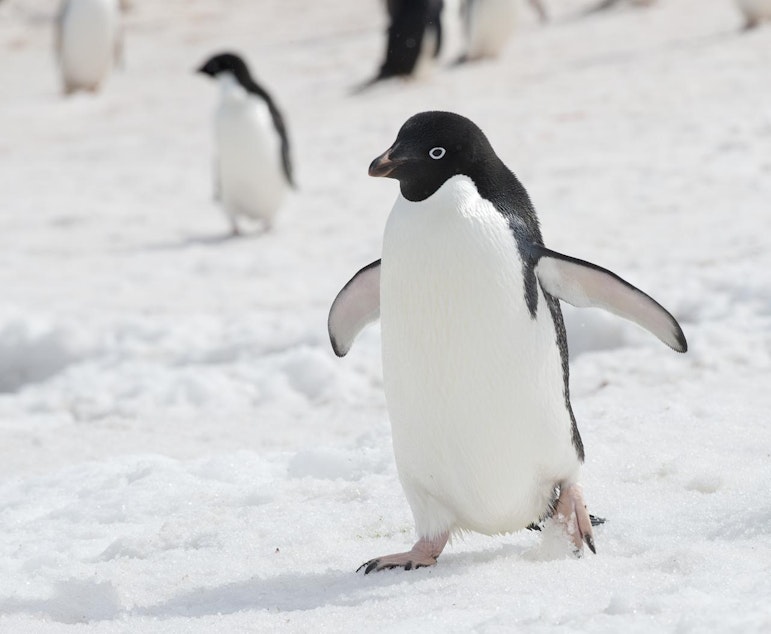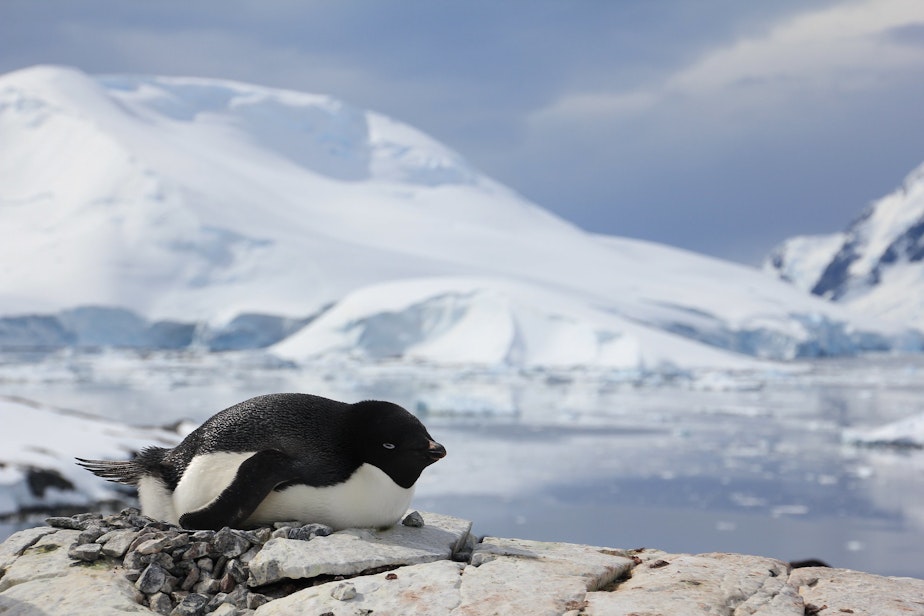A harsh life among ‘super over-caffeinated’ penguins

Filmmakers Jeff Wilson and Mark Smith arrived early to Cape Crozier in Antarctica. They wanted to beat the Adelie penguins to their breeding grounds.
They weren’t entirely prepared for the scene that awaited them.

“Someone had failed to explain to us that an entire Adelie colony is basically built on thousands and thousands of years of decaying dead penguins,” Smith said.
And then came the storm, meaning three days of hunkering down in their tiny cabin riding out winds of 150 miles an hour.
Sponsored
“We’re literally sitting in there thinking the roof is going to come off this thing, we’re going to die, all the equipment is going to be blown away,” Smith said.
But they made it through and started watching for the penguins to arrive.
“You’re scanning the horizon. Eventually you’ll see these little dots coming – thousands and thousands of little dots coming toward you,” Smith said.

Sponsored
The penguins came marching their way, about 500,000 on their way to breed. And that’s when the grim landscape really saw a change.
“It goes from being a very placid, cold, beautiful place to this just chaotic war zone,” Wilson said.
Here’s the scene: Half a million penguins making a screeching din, skuas – a predatory bird – killing everything they can, the frozen mud turning to liquid mud with the warming temperatures sloshing around a mixture of blood, mud and penguin poo.
Sponsored

The Adelie penguins have to work fast: They have about four months to land on Antarctica, build a nest, meet a mate, mate, lay an egg, incubate it, hatch it, rear the chicks, and then move the colony off the mainland again.
It’s an intense time and the penguins get competitive. They’ll fight to the death for position and mates. It’s the personalities and character of the Adelie penguins that distinguish them.
“We always thought that the emperors are like stoner penguins: They just sit there and they’re kind of curious and easygoing. They’ll come up and say hello,” Wilson said. “I think it’s mainly because they’re fairly bird-brained. There’s not as much going on between the eyes in an emperor penguin."
Sponsored
“But an Adelie penguin conversely is kind of like a super over-caffeinated penguin.”
Wilson said these penguins are more than just cute and funny. By filming the fighting, stealing and other bad behavior, Wilson said it makes them more relatable to humans.
Sponsored
“I feel strongly that it’s really important for us as wildlife filmmakers,” Wilson said, “to remind people that humans are not the center of the world on most of the planet."
“There is so much going on, in particular in the natural world, that has absolutely nothing to do with us.”
Listen to the podcast to hear the full conversation with host Chris Morgan as they discuss the challenges and surprises of being out there, trying to stay sane and coming home again.
Here's the video of the snow leopard they talk about on the podcast:
Sponsored
THE WILD is a production of KUOW in Seattle in partnership with Chris Morgan Wildlife and The UPROAR Fund. It is produced by Matt Martin and edited by Jim Gates. It is hosted, produced and written by Chris Morgan. Fact checking by Apryle Craig. Our theme music is by Michael Parker. Produced for the web by Kara McDermott.
Explore where we have gone to report on this season of THE WILD. You can zoom, move around and click on the icons for more tidbits:






